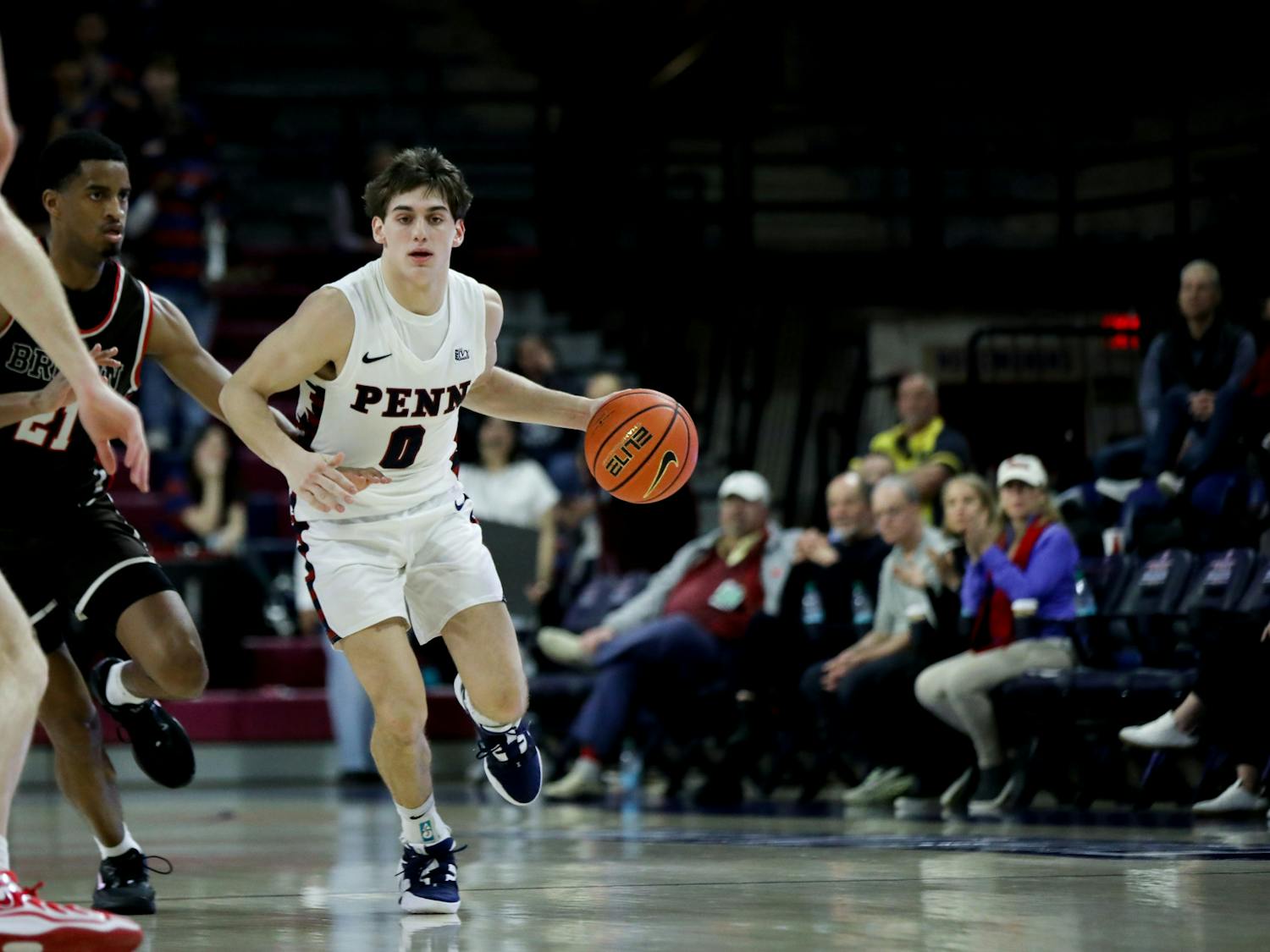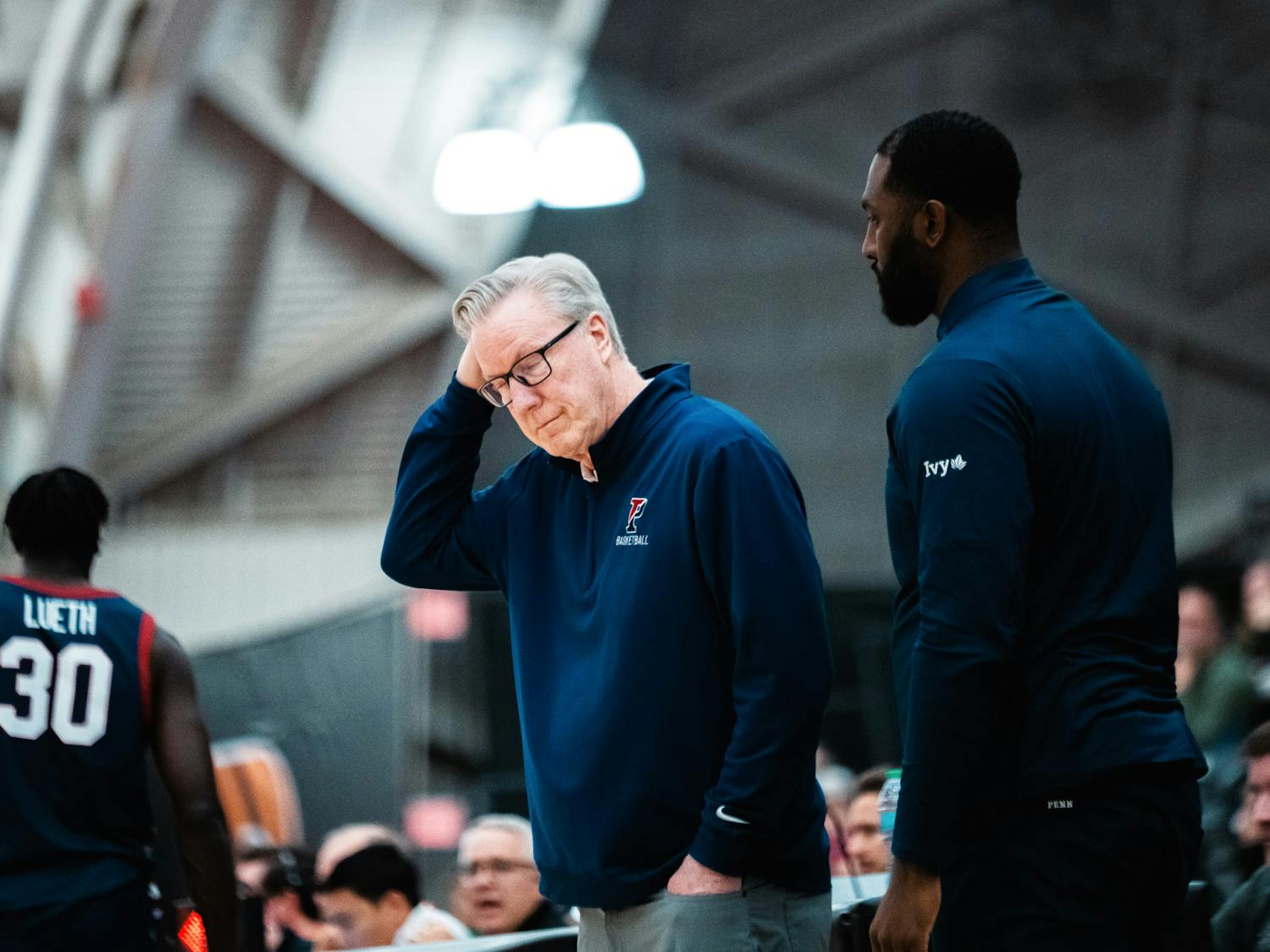Fans of HBO's The Sopranos might recall that Carmine Lupertazzi, New York's fictional mob boss, is said to have invented point shaving.
And the idea of mobsters convincing players to deliberately concede points so that one team can beat the point spread is not merely fiction. In 1981, a gambling scandal involving the mob and the 1978-79 Boston College men's basketball team was uncovered.
But one Penn professor thinks that the practice is neither fiction nor anachronism, and he has the data to back it up.
In a study that will appear in the American Economic Review this May, Wharton professor Justin Wolfers suggests that point shaving might be more prevalent than even a pessimist would admit.
Wolfers observed that in games with double-digit favorites, those teams tend to barely miss covering the spread. For example, in games with 14-point spreads, the favorite often tends to win by 12 or 13, winning by 15 or 16 far less often. In addition, while small favorites cover the spread about 50 percent of the time, large favorites only cover in 47 percent of the games.
Heavily favored teams like Duke are likely to solicit more bets simply because of their popularity. In order for a sportsbook agency to maximize profits, it wants an equal amount of money to be bet on each side. This drives the spreads in Duke's games to inaccurate levels in order to convince people to bet on the underdog. However, Wolfers also presents data to show that the discrepancy cannot be due to inaccurate lines in games with large favorites.
To Wolfers, this points to a dangerous trend; he estimates that point shaving occurs in about 5 percent of these games with large spreads.
In response to a March 8 article in The New York Times about Wolfers' research, Rachel Newman-Baker, the NCAA's director of agent, gambling and amateurism activities, admitted that point shaving does happen in college basketball.
"I don't think we want to come across as saying, 'This isn't happening,'" she told the Times.
"But we don't think it's a crisis."
Newman-Baker cited research conducted by the NCAA in 2003, which Wolfers also referenced. The survey concluded that 1.5 percent of players admitted to knowing a student-athlete who took money to play poorly.
In that same report, 388 men's basketball players were surveyed about gambling in college basketball. According to a March 9 press release by the NCAA, 17 players anonymously admitted to accepting money for playing poorly or providing inside information, or knowing a player who did.
And the problem may have become worse since the survey was conducted. Gambling -- especially online gambling -- has grown in popularity within the last year, a fact that the NCAA has acknowledged. A representative from Bodog.com's media relations department said that the popular online gambling site had grown by "leaps and bounds." Bodog.com processed over $7 billion in wagers in 2005.
In the first round of the NCAA tournament, seven of the 32 favorites are expected to win by more than 12 points -- including Texas, which is a 15.5-point favorite over Penn. With one of the biggest gambling events of the year approaching, an obvious question arises: Could point shaving in the Big Dance be a reality?
"I don't know how to answer that question," Wolfers admitted. "These are the most important games for gamblers."
But "if you look at the Chicago Black Sox, ... they did it in the most important games of them all."
In 1919, that Chicago team threw baseball's World Series in perhaps America's most infamous gambling scandal.
"[But] you've got two different directions there," Wolfers said, alluding to the increased attention and scrutiny given to NCAA Tournament games that might make point shaving riskier.
It's difficult to know whether the results of large-spread games are accurate. But, as the professor would suggest, it might not be wise to bet on it.








